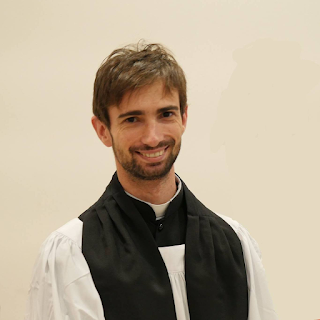Reading
Matthew 17:22-27
22 When they came together in Galilee, he said to them, “The Son of Man is going to be delivered into the hands of men. 23 They will kill him, and on the third day he will be raised to life.” And the disciples were filled with grief.
24 After Jesus and his disciples arrived in Capernaum, the collectors of the two-drachma temple tax came to Peter and asked, “Doesn’t your teacher pay the temple tax?”
25 “Yes, he does,” he replied.
When Peter came into the house, Jesus was the first to speak. “What do you think, Simon?” he asked. “From whom do the kings of the earth collect duty and taxes—from their own children or from others?”
26 “From others,” Peter answered.
“Then the children are exempt,” Jesus said to him. 27 “But so that we may not cause offense, go to the lake and throw out your line. Take the first fish you catch; open its mouth and you will find a four-drachma coin. Take it and give it to them for my tax and yours.”
Comment
Jesus makes the second of the three announcements relating to his death and resurrection (cf. Mt 16:21-23). The expression "[he] is going to be delivered" (v. 22) refers to the betrayal by Judas, who will hand him over to the priests of the temple. The deep sadness of the disciples (v. 23) indicates that they understand that Jesus will be killed but they do not understand the mystery of his final glorification.
Before the destruction of the temple in Jerusalem, every male aged 20 and over had to pay a contribution for the maintenance of the temple and its sacrificial cult (cf. Ex 30:11-16; Ne 10:33). Jesus loved the temple by sanctifying the Jewish holidays in it; his death of Jesus is the manifestation and anticipation of the destruction of the temple and the inauguration of a new epoch in the history of salvation, when God will be worshiped "in the spirit and in truth" (Jn 4:23), in the mystical Body of Christ, which is his Church.
The expression "the kings of the earth" (v. 25), which occurs frequently in the Psalms, in the Revelation, and in the apocalyptic literature, has a pejorative value and is antithetical to the title "king of heaven" attributed to God.
Just as kings do not tax their children, so Jesus - Son of God - and disciples - children of the kingdom - are not obliged to pay the temple tax (v. 27). To avoid giving scandal to those who fail to understand the mystery that is hidden in him, Jesus complies with the request, paying the tax for himself and for Peter; he who in incarnation has assumed the condition of a servant (Phil 2:7-8) offers a model for the conduct of all disciples. A silver coin corresponded to a shekel; the tax for the temple, for the poorest, was half a shekel (corresponding to about two days of work).
Jesus does not deliver the tax by the hand of an angel, but asks Peter, the fisherman, to go and collect it from the mouth of a fish. Christ fulfills his will by making us participants according to our abilities, to be free and obedient in love.
Prayer
Your Spirit, o Lord, enlighten us on the mystery of your gift for us so that renewed in our minds we can adore you and obey your commandments. Amen.
- Rev. Dr. Luca Vona

